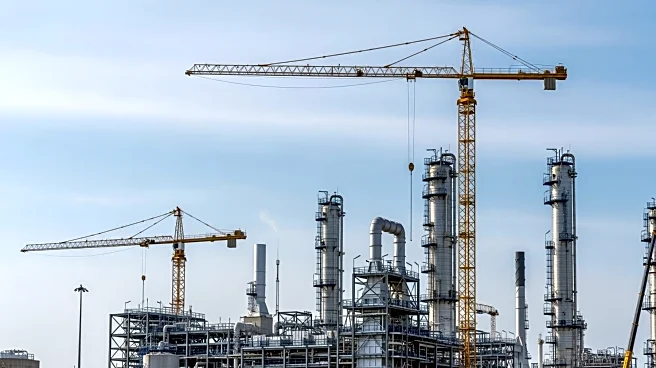What's Happening?
Iraq's Minister of Oil, Hayan Abdul Ghani, announced that the country is close to achieving self-sufficiency in gasoline production with the upcoming inauguration of the Fluid Catalytic Cracking (FCC) project in Basra. This $3.75 billion project, funded
by a low-interest loan from Japan, is a key part of Iraq's strategy to become an exporter of refined oil products. The FCC unit will convert heavy fuel oil into high-value products, including high-octane gasoline, diesel, and liquefied gas. The project is expected to produce 4,200 cubic meters of gasoline, over 2,000 cubic meters of diesel, and more than 750 tons of liquefied gas daily.
Why It's Important?
The Basra refinery upgrade is a transformative step for Iraq's oil industry, reducing the country's reliance on costly fuel imports and enhancing its refining capabilities. This development is crucial for Iraq's economic growth, as it will allow the country to save on import costs and potentially increase its revenue through exports. The project also underscores the importance of international cooperation, as evidenced by the favorable loan terms from Japan. By achieving self-sufficiency, Iraq can strengthen its energy security and contribute to regional stability in the oil market.
What's Next?
The completion of the FCC project will enable Iraq to fully meet its domestic gasoline needs and transition into a net exporter of refined petroleum products. The government is expected to focus on further expanding its refining infrastructure and exploring new export opportunities. The successful implementation of this project could attract additional foreign investment and partnerships, further boosting Iraq's oil sector and economic prospects.

















